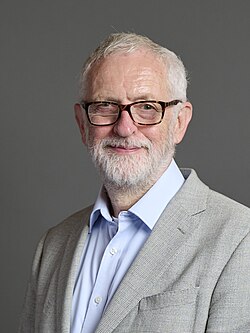
Introduction
Jeremy Corbyn, a name synonymous with the modern left in British politics, has been a polarising figure within the Labour Party and the wider political landscape of the United Kingdom. Having served as the Leader of the Labour Party from 2015 to 2020, Corbyn’s socialist policies and advocacy for social justice sparked both fervent support and staunch opposition. As the Labour Party reconsolidates itself after the 2019 general election defeat, understanding Corbyn’s influence remains crucial for grasping the direction of UK politics.
Corbyn’s Political Journey
Corbyn’s political journey began in 1974 when he was first elected as the Member of Parliament for Islington North. As a long-time backbencher, he was often seen as a dissenter within the party hierarchy, vocalising views on issues such as anti-austerity measures, nuclear disarmament, and climate justice. His election as Labour leader marked a significant shift, introducing a wave of leftist policies aimed at expanding social welfare, tackling inequality, and renationalising essential services.
The 2017 and 2019 General Elections
The 2017 general election saw Corbyn returning Labour to a competitive position, gaining 30 seats and nearly forming a government. His manifesto, which included significant spending increases on public services and a commitment to ‘For the Many, Not the Few’, resonated with a considerable voter base. However, by the 2019 election, the political tides had shifted. Labour suffered a catastrophic defeat, losing 60 seats, with many attributing the loss to the controversies surrounding Corbyn’s leadership, especially concerning his handling of antisemitism allegations within the party and ambiguity over Brexit.
Post-leadership Influence
Following his resignation as leader, Corbyn maintained a strong presence in politics, even as Labour sought to recalibrate its direction under new leadership. His dedicated supporters continue to advocate for the policies he championed, suggesting that his impact on the party’s identity may endure beyond his tenure. Moreover, grassroots movements and left-wing organisations, inspired by his vision of a more equitable society, have gained traction nationally.
Conclusion
Jeremy Corbyn’s political journey and influence underscore the ongoing debate regarding the future of the Labour Party and the left-wing movement in the UK. As new leaders emerge and the party seeks to reconnect with voters, Corbyn’s legacy will likely shape discussions around social justice and economic reform. The significance of his contributions is felt deeply among both proponents and critics, ensuring his place in the annals of UK political history. Looking ahead, it remains to be seen how his vision will influence future elections and policy-making in an evolving political landscape.
You may also like

The Evolving Role of the Manager in Modern Business

Understanding the Current Political Landscape in the UK
